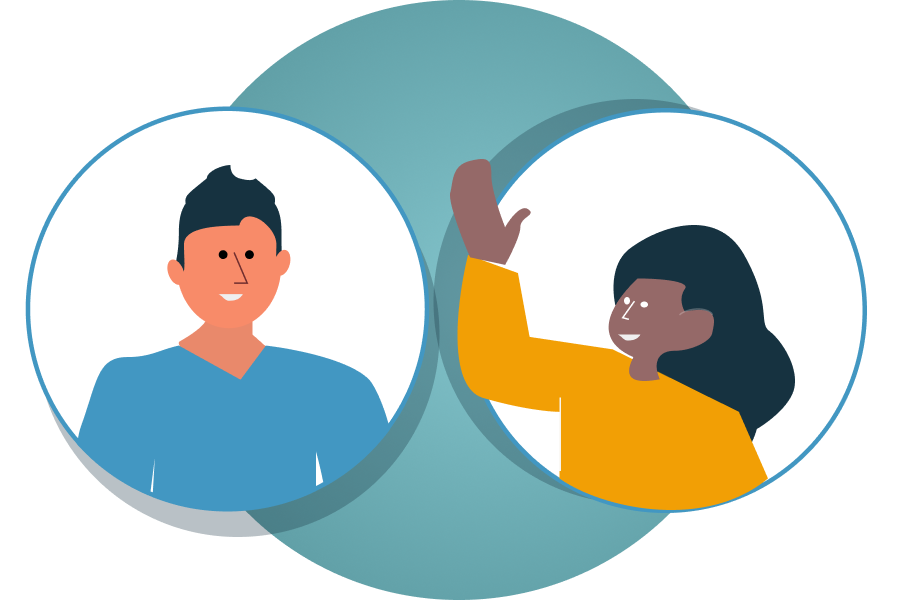Get help for Low Self-Esteem
Improve your relationship with yourself for a more fulfilling life
Are you struggling from low self-esteem?
If you are struggling with your self-image or self-esteem, you may go through life feeling bad about yourself needlessly. You may engage in constant negative self-talk, like "I'm not good enough" and overly focused and ruminating on your weaker qualities or seeing yourself as a failure.
Low self-esteem has long-term damaging effects on your quality of life. Low self-esteem can manifest in not speaking up at work meetings or in class and it can also increase problems in your relationship with others or lead to self-damaging behavior. Low self-esteem is also often present in individuals suffering from depression, anxiety, phobias, psychosis, delusional thinking, or who have an illness or a disability.
Low self-esteem and a poor self-image keeps you from enjoying life, doing the things you want to do, and working toward personal goals.
Recognizing the signs of low self-confidence is an important first step in growing confidence; recognizing your own worth is important in improving your relationship with yourself.
Improving your self-esteem is an investment in the most important relationship - relationship with yourself.
“Low self-esteem often leads to feelings about yourself that are inaccurate.”
Common Signs & Causes of Low Self-Esteem
Signs of Low Self-Esteem
Feeling worthless or that your life is meaningless
Feeling incompetent or inferior
Feeling unloved or generally unwanted or disliked
Difficulty speaking up and prioritizing your own needs, wants, and feelings
Fear of intimacy
Negative self-talk, such as “I’m not good enough”, “I am a broken”, “I hate how my body looks”, “No one will love me”
Apologizing or feeling guilty for things that you have no control or responsiblity for
Avoiding disagreements or situations of potential conflict
Staying in relationships where your love is unappreciated or unreciprocated
Difficulty making choices or decisions
Negative self-image or self-perception
Poor body image and eating disorders
Frequent or excessive feelings of shame or guilt
Sensitivity to criticism
Social withdrawal or social anxiety
Excessive rumination or preoccupation with personal problems
Physical symptoms, such as fatigue, insomnia, headaches, stomaches, digestive issues
Panic attacks and feelings of anxiousness
Feelings of ineffectiveness, powerlessness and worthlessness
Experiencing “existential crisis”
Causes of Low Self-Esteem
Uninvolved/ Negligent parents or childhood experiences
Unrealistic goals and expectations - external or internal
Academic or career pressure and stress
Trauma/ Abuse – physical, emotional and/or sexual
Poor body image or self-image
Habitual or learned negative decision making and thought patterns
Experiencing setbacks in life
Relationship conflict - whether in relationships, marriage, work, family or peers
Illness or disability
Financial difficulties
Self-diagnosis of any mental health condition or illness can be extremely dangerous. This is not intended for use or interpretation as official psychological diagnosis. If you suspect that you may be struggling with your mental health, please consider seeking help by booking a consultation with our therapists.
Improve your Self-esteem in Online Therapy
“Identifying and changing negative thought patterns and behaviors can break the cycle and improve your self-esteem and relationship with yourself. ”
Our therapists are trained to help you with low self-esteem, low self-confidence, or poor self-image. Online Therapy can help you work through the root causes and improve your quality of life. It can help you:
Identify patterns of negative thinking, behavior, decision making
Understand the root causes of poor self-esteem
Change from negative thought patterns into positive and healthier ways of thinking and perception of yourself
Increase your self-confidence and sense of self-worth
Improve your relationship with others
Develop problem-solving skills and ability to better manage conflict
How it Works
Tell Us Your Needs
Answer a few questions in our intake questionnaire to help us understand your therapy needs, preferences and goals.
Review Your Match
Based on your responses, we will suggest therapists that are best matched to you.
Schedule Your Session
View your therapist’s calendar and schedule your therapy session.
Begin Therapy
We’ll send you a reminder before each session. Find a quiet and private space, get comfortable and start online therapy.






